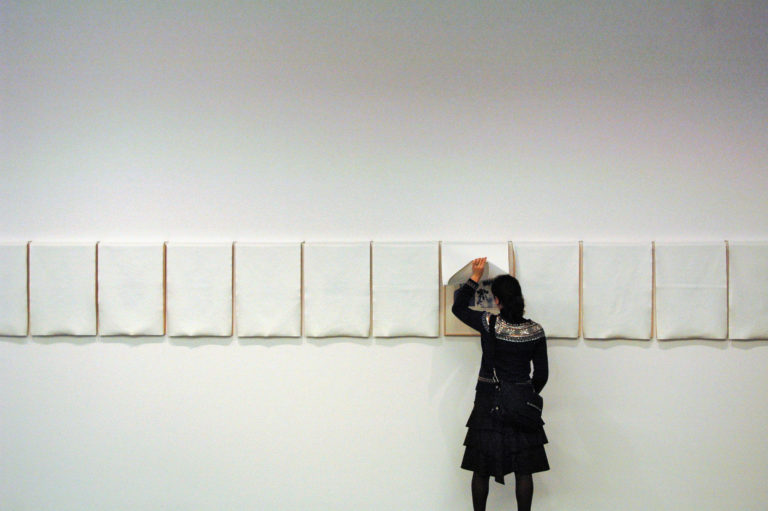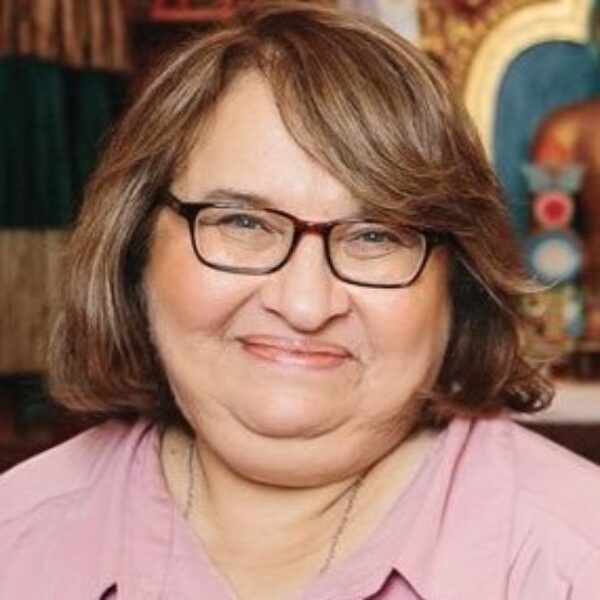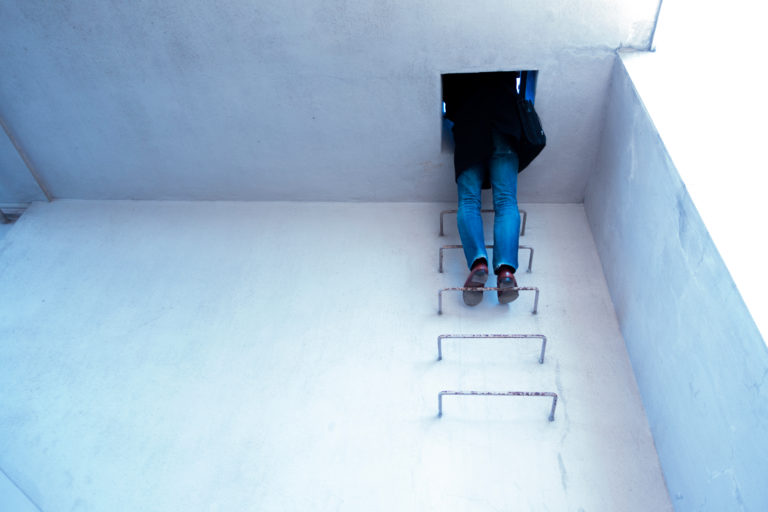
Image by Gal/Flickr, Some Rights Reserved.
A Movement into the Truth of Our Own Experience
My first meditation teachers came from a Burmese tradition. My later teachers were from a Tibetan lineage. Within a year, I had been exposed to quite different traditions, lineages, and ways of practicing.
This was a gift, really, but whenever I sat down to meditate I’d find myself lost in wondering which method to practice. Should I do this one or that one? Which method is faster? I should probably think about the people who do each practice and what I think of them. These are all thoughts that filled my mind, overwhelmed by conjecture. Often, I would realize that I had been obsessing so long that I didn’t even end up meditating.
This story makes me laugh for many reasons, partly because it’s so relatable. It’s easy to find ourselves in scenarios like this — situations of indecision that stem from doubt.
Doubt is the fifth of the five hindrances to insight in meditation teaching — the others being grasping, aversion, sleepiness, and restlessness. Doubt is the hardest to spot immediately; it often disguises itself to us as something skillful, like a brilliant thought.
The other hindrances tend to be much clearer to identify when they arrive. If you’re sleepy, you’re tired; if you’re angry, you’re upset. I often visualize doubt as arriving with a little sign that says, “I’m the smartest thing you’re ever going to think.”
Whatever we are looking for in “truth,” it’s fair to say that wisdom, which is definitely a kind of truth, often isn’t immediate. And yet doubt can make us cling to immediacy — we get impatient and feel like we need instant answers.
At the same time, doubt makes us move away from intuition, our internal sense of what’s true. So we’re left with scrutiny and comparison: like all those times when I was trying to figure out which meditation to do. I would get so far away from my initial purpose (meditating) in order to seek some mythical idea of truth about which form of meditation would be better. I was stuck in a vicious cycle and, of course, the great irony is that nothing fruitful came from all the ruminating and comparing.
Famously, the Buddha taught:
“Don’t believe anything. See for yourself what’s true.”
The Buddha is not suggesting we cling to doubt, but rather that we practice skillful questioning about our experience. The investigation that occurs when we carefully pay attention happens because we are aiming to be truly present with our experience. In that presence, clear seeing and discernment have the space to arise.
When I was studying with one of my first teachers, Munindra, in Bodh-gaya, my fellow students would sometimes express interest in going off and exploring other traditions. They weren’t trying to be rude or discount what they had been learning from Munindra; they were just curious. It was India! Swamis and yogis and pundits and lamas were all around.
I found Munindra’s response interesting and somewhat surprising. With a great deal of warmth and openness, he would encourage them to go. When asked about it, he quietly replied:
“The dharma (the truth, the nature of things, the way or the path to freedom) doesn’t suffer from comparison.”
I learned a lot about fearlessness from Munindra. He was a teacher who didn’t cling to his own students, who wanted us to be free to explore and question and wonder. He gave us permission to discover the truth on our own, and trust in that discovery, wherever that journey took us.
It’s also said that the dharma is timeless, meaning, quite literally, that the practice of arriving at the truth is not contingent on time. Similarly, the idea of coming to “the truth” isn’t about acquiring truth as if it were an object, some fixed answer in response to a specific question.
The truth is available at every moment when we trust our own ability to discover it, when we have the presence of mind and balance to distinguish fear from intuition, to know the difference between a corrosive concern about our own capability from the disavowal of something not even worth doing.
It’s an ironic age. The common belief is that cynicism proffers strength, or so we think. Really, it just leaves us stuck, unwilling to take risks and try things for ourselves. That’s where the real wisdom of mindfulness comes in. The practice of mindfulness is not a technique to be mastered, but a movement we make as we arrive in each moment to fully listen to and learn to trust the truth of our own experience.


Share your reflection